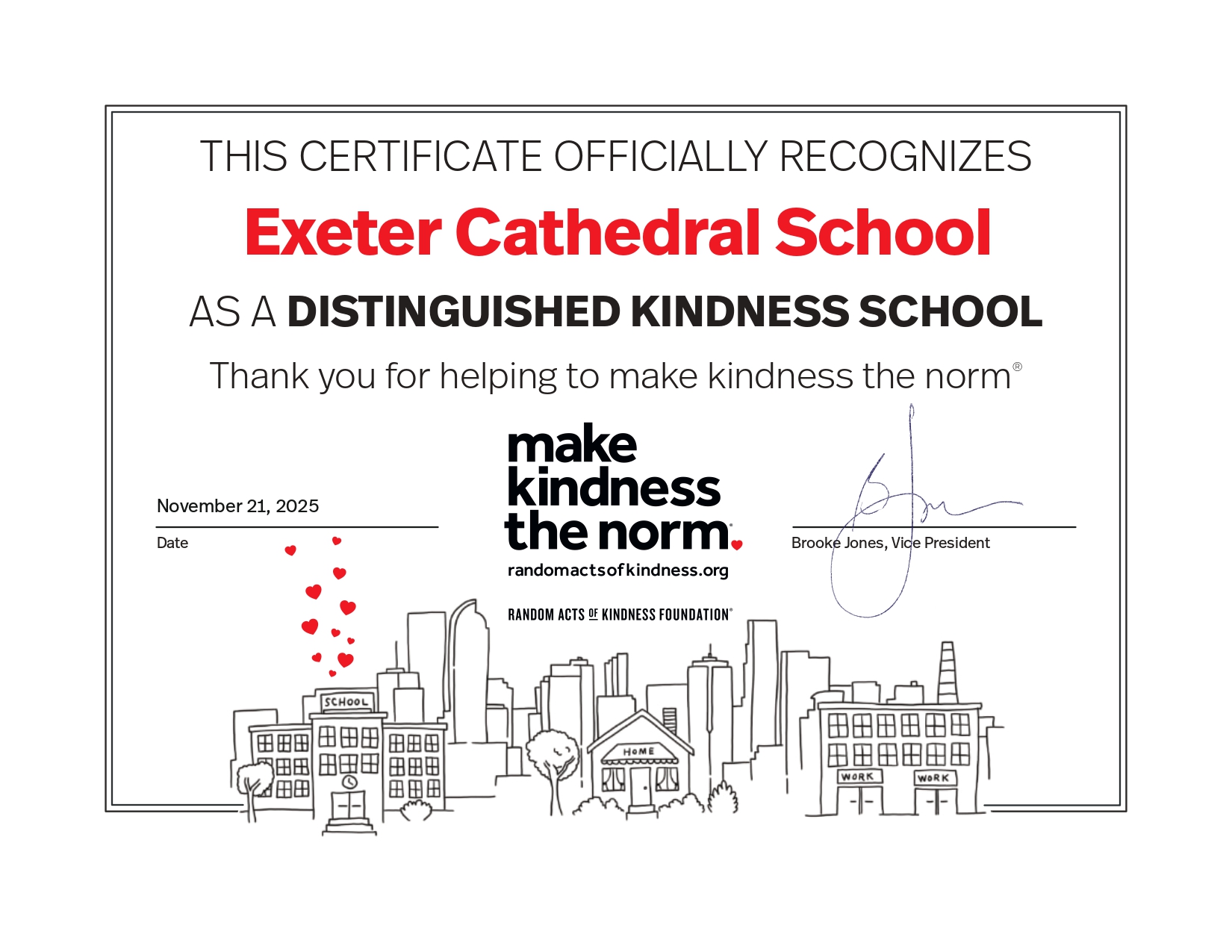As you may be aware, assemblies in the Prep school are held in Kalender Hall in three ‘bubbles’ – years 3 and 4; years 5 and 6. I won’t be seeing years 7 and 8 because of the Bank Holiday.
This week, I’m introducing an important experience for the Prep School, in preparation, for next week, when I’ll lead a Eucharist for each bubble. Obviously, because of the C-19 restrictions, this experience will also need a careful approach. At the end of term, we all hope and pray, that a School Eucharist might be held in the Cathedral as has been, of course, the usual practice before the Pandemic.
What is this Eucharist?
Given the diversity of background and school families, perhaps the word ‘Eucharist’ will seem unfamiliar, even strange, some knowing it as Holy Communion; some – Mass. Each of these words express different but important aspects of Bread and Wine, blessed, broken, and given out; all arising from the Last Supper when Jesus made it clear: ‘Do this in remembrance of me’. The word Eucharist comes from Greek – meaning ‘the giving of thanks for the gift of Christ’s whole life in the bread and wine. Holy Communion points to the importance of the experience of sharing ‘the love feast of Christ’ together. The word Mass comes from Latin words at the end of the celebration: ‘Ita Missa est’: ‘Go, you are dismissed’ or ‘Go, you are sent out as the Body of Christ.’ As the bread is blessed, broken, and given out, so together our attitude to life is that we are blessed, we are broken and we are given out.
Sacrament
Traditionally put, a sacrament is an outward and visible sign of an inward and spiritual grace; grace being the generous and loving gift of God. Another way of putting it that the bread and wine [the body and blood of Christ] point to the Presence of God’s overflowing Love here and now, in the beauty and, of course, in the suffering of the world where we actually are.
Receiving of Communion
In the Eucharist, bread and wine are blessed [‘consecrated’] as the body and blood of Christ. Different traditions in Christendom have different attitudes and approaches to this. At Exeter Cathedral, at present, those who have been ‘confirmed’ receive the sacrament. Those who are not yet confirmed or perhaps feel that it’s not for them are invited to receive a blessing from the priest.
Confirmation
This is simply making it clear with body, heart, and mind that you are committed to being the presence of Christ, a gift given you at Baptism. The Bishop that each candidate has been prepared and is ready to take on this lifetime’s commitment. In Christianity, each person is enabled, encouraged, and sustained by the Holy Spirit, which is the dynamic of God’s love active in each person.
Kalender Hall
So, consecrated wine won’t be distributed to keep to safe ‘C-19’ guidelines. However, wafers [basically unloved bread, according to tradition] will be given to those who are confirmed. Then I will bless those who are not confirmed or for those who want to make a different choice.
The Point?
The sacrament of Christ’s body is a unique way of being woken up to being the Presence of Christ’s love here and now.
‘The bread is blessed, broken and distributed so that you are blessed, broken and distributed.’
Those who receive a blessing are drawn into the same wave of Christ’s love in action.
If your son[s] or daughters[s] are interested in Confirmation, please contact me.
Bishop Martin Shaw












